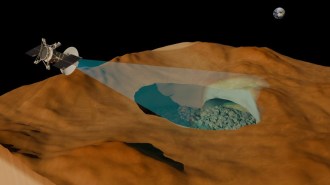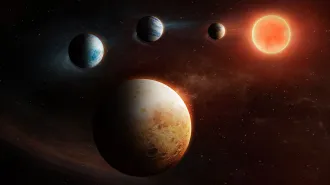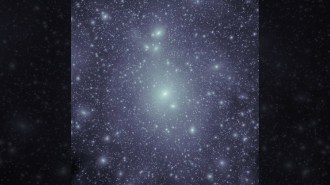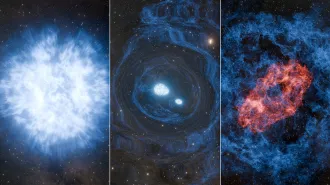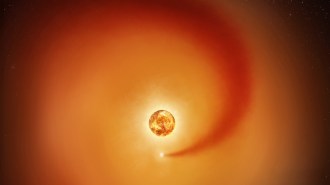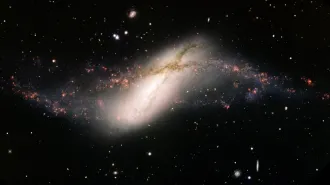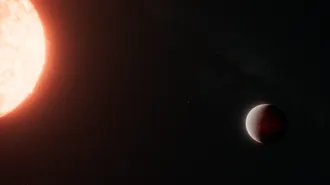Return of superstar supernova raises doubt about its identity
Brightest explosion’s resurgence suggests black hole mischief
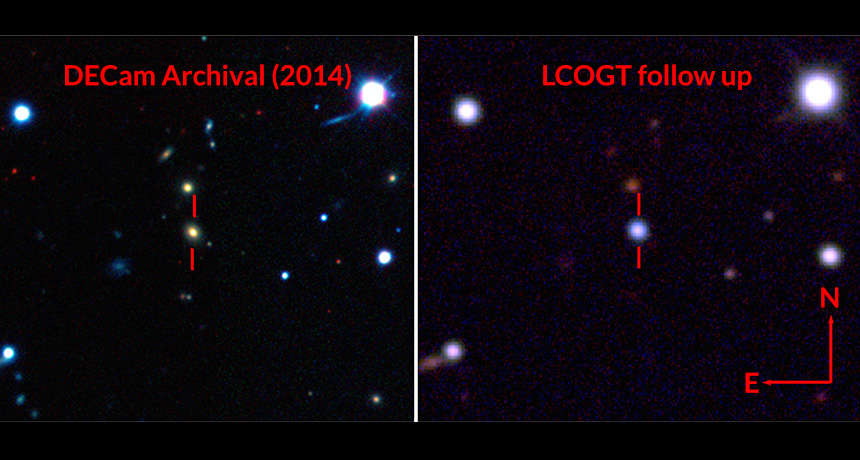
IT’S BAAAACK An alleged supernova — the brightest known — detected in 2015 is back for another round, researchers report. Left and right panels show before and after images from the initial detection.
THE DARK ENERGY SURVEY, B. SHAPPEE AND THE ASAS-SN TEAM
